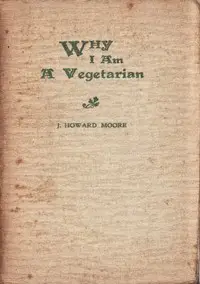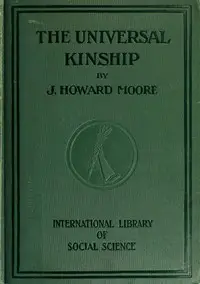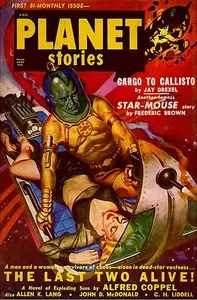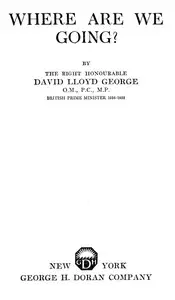"Why I Am a Vegetarian" by J. Howard Moore is a philosophical discourse on vegetarianism, presented as an address delivered before the Chicago Vegetarian Society in the late 19th century. This book advocates for a compassionate lifestyle that recognizes the rights and welfare of non-human beings, suggesting that ethical living extends beyond human boundaries. It challenges the societal norms surrounding diet and animal rights, aiming to influence the reader’s perspective on exploitation and morality. In this thought-provoking text, Moore reflects on the moral implications of consuming animal products and argues that a vegetarian diet is not only possible but also preferable for maintaining a just and respectful existence. He asserts that the act of eating meat is fundamentally a form of exploitation, equating it with broader social injustices. Throughout his address, he elaborates on the kinship between humans and animals, supporting his arguments with philosophical insights and historical references. Moore ultimately calls for a deeper understanding of our responsibilities toward all sentient beings, promoting vegetarianism as a logical and ethical choice aligned with the principles of empathy, justice, and solidarity. (This is an automatically generated summary.)

Why I Am a Vegetarian An Address Delivered Before the Chicago Vegetarian Society
By J. Howard (John Howard) Moore
"Why I Am a Vegetarian" by J. Howard Moore is a philosophical discourse on vegetarianism, presented as an address delivered before the Chicago Vegetar...
John Howard Moore was an American zoologist, philosopher, educator, and social reformer. He was best known for his advocacy of ethical vegetarianism and his pioneering role in the animal rights movement, both deeply influenced by his ethical interpretation of Darwin's theory of evolution. Moore's most influential work, The Universal Kinship (1906), introduced a sentiocentric philosophy he called the doctrine of Universal Kinship, arguing that the ethical treatment of animals, rooted in the Golden Rule, is essential for human ethical evolution, urging humans to extend their moral considerations to all sentient beings, based on their shared physical and mental evolutionary kinship.














